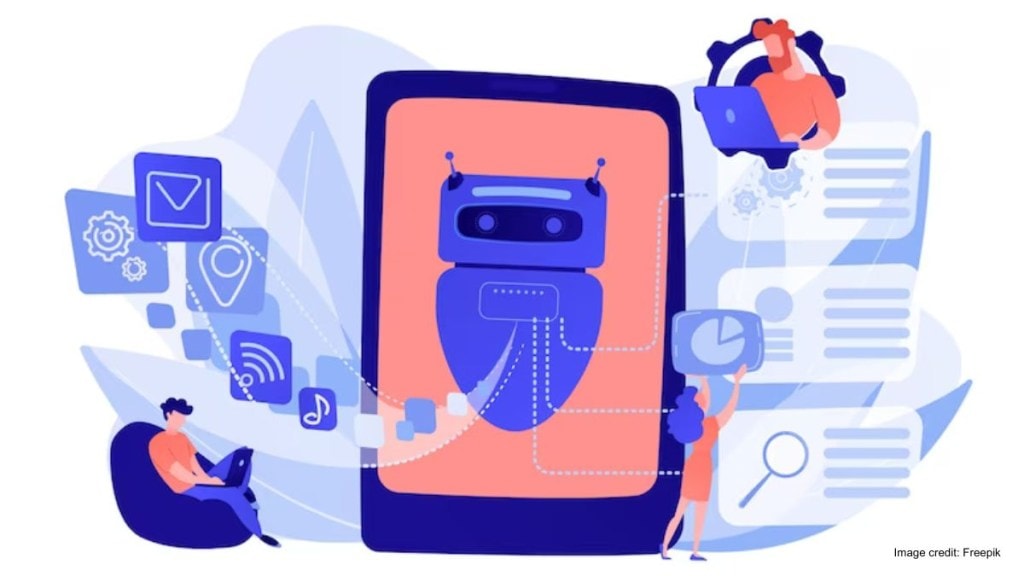By Abdul Rehman
Artificial Intelligence (AI) has instigated a profound shift in the manner in which we engage with technology, no longer relegated to the realm of speculative futurism, but a pervasive reality of contemporary society. In the domain of AI, chatbots are transforming the terrain of customer service, endowing businesses with an unparalleled opportunity to optimize their operational efficiencies, augment customer experiences, and bolster financial outcomes. According to McKinsey’s “The State of AI in 2020” report, chatbots have the potential to deliver significant cost savings, potentially curtailing customer service expenditures by up to 30%. The disposition of customers towards chatbots is equally promising, as a HubSpot survey revealed that 47% of consumers are amenable to purchasing goods via a chatbot, while 53% of consumers are willing to leverage a chatbot for receiving customer support.
What are AI-powered chatbots?
AI-powered chatbots are revolutionary virtual assistants that employ sophisticated natural language processing (NLP) and machine learning algorithms to mimic human interaction, enabling them to perceive and respond to customer queries. These chatbots offer a gamut of services, encompassing issue resolution, task completion, and other customer support functions, such as scheduling appointments or placing orders. The smooth integration of these chatbots across various communication channels offers businesses unparalleled flexibility to optimize their customer service and engagement endeavours, thus revolutionizing the way organizations operate in the modern digital landscape.
How do AI-powered chatbots work?
AI-powered chatbots leverage machine learning algorithms to conduct a comprehensive analysis of customer inquiries and offer customized responses that are both contextually relevant and linguistically nuanced. By continuously learning from every interaction, these chatbots exhibit an enhanced capacity to improve their operational effectiveness over time. Furthermore, the utilization of Natural Language Processing (NLP) technology empowers chatbots to discern the intricacies of language, including but not limited to colloquial expressions, idiomatic phrasing, and even slang terminology. This aptitude ensures that these chatbots offer precise and personalized responses, thereby fostering a sense of empathy and comprehension among customers, and enhancing their satisfaction with the customer service experience. Here’s how AI-powered chatbots are playing a significant role in customer service:
24/7 Availability
Among the many advantages of AI-powered chatbots, one that stands out prominently is their ability to remain accessible to customers around the clock. Customers can avail themselves of the services offered by chatbots at any hour of the day or night, receiving prompt and instantaneous responses to their queries. This high degree of availability enables businesses to furnish a superior customer experience, reduce response times, and augment overall customer satisfaction. By operating continuously, chatbots prove to be a reliable and efficient asset for businesses to strengthen their customer engagement initiatives, ensuring that customer needs are met promptly and with the utmost efficacy.
Personalization
AI-powered chatbots are equipped to gather a wealth of information regarding customer preferences, purchase history, and behavioural patterns. This collected data serves as a foundation for personalizing the customer experience, offering tailored recommendations that are contextually relevant and suited to the unique needs of each customer. The strategic implementation of personalized recommendations offers a multitude of benefits for businesses, including enhanced sales figures, amplified customer loyalty and experience.
Cost-Effective
AI-powered chatbots possess the ability to manage an extensive volume of customer inquiries concurrently, thereby minimizing the necessity for human intervention. This capacity serves to diminish labour costs for businesses and streamlines their overall operations. Additionally, chatbots aid in reducing the number of customer service representatives required, thus enabling professionals to concentrate on complex inquiries that demand a human touch. The proficiency of chatbots to handle multiple queries simultaneously heightens the productivity of customer service operations, optimizing the allocation of resources and enhancing overall operational efficiency.
Multichannel Integration
The seamless integration of AI-powered chatbots across diverse communication channels, encompassing websites, social media platforms, messaging applications, and voice assistants, empower businesses with the ability to connect with their customers through their preferred modes of interaction, resulting in elevated levels of reach and engagement. No wonder, the adoption of AI-powered chatbots in today’s digital era, has become increasingly pivotal for businesses to maintain a competitive edge.
Going Forward
The trajectory of AI-powered chatbots is quite promising, given their increasing sophistication and efficacy in performing a diverse range of functions. In the coming years, AI-powered chatbots will continue to develop along various trends, including advancements in natural language processing, greater multilingual capabilities, more personalized interactions, and effortless integration with other cutting-edge technologies. More importantly, chatbots will become increasingly user-friendly and engaging, sporting more intuitive and interactive interfaces, ultimately driving greater adoption and user satisfaction.
The author is co-founder, Digital Futur

